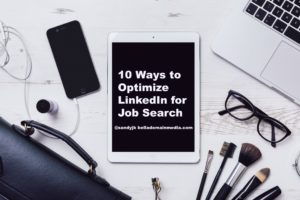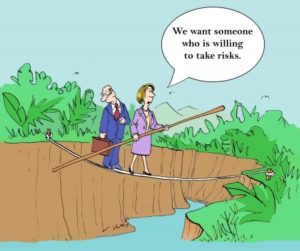6 Hiring Mistakes and How to Avoid Them

When it comes to running a business, there is a moment that can make or break a company: the hiring process. Jim Collins, author of the bestselling business how-to “Good to Great: Why Some Companies Make the Leap and Other Don’t”, once stressed the importance of the hiring process by saying "Great vision without great people is irrelevant."
Every day businesses make poor hiring choices that sideline their goals and cost companies thousands of dollars per employee. The repercussions of poor hiring choices negatively impact everything from production and customer service to product quality and company image.
I find there are six common hiring mistakes that snowball into the perfect storm of a poor hiring decision.
#1 Applicant Availability & Quality

According to the U.S. Bureau of Labor Statistics unemployment at an all-time low of 3.8% with vacancies remaining open nationally due to an applicant shortage. Simply put, there aren’t enough workers to go around. Educational requirements, technical experience, industry knowledge and density of the hiring market all influence your quality and quantity of your applicant pool. Hiring mistakes are common when you choose amongst marginally qualified applicants or have too few applicants to make the right match.
#2 Hiring Out of Desperation
Any unexpected vacancy can cause numerous issues that can result in significant problems. While most companies manage the situation by delegating tasks, over time that poses a real problem that can affect other areas of your daily business operations. Morale lowers with employees pulled into unfamiliar areas carrying the weight of the extra workload.
Managers find themselves facing pressure to quickly hire someone, leading to a first-come, first-hired situation. Applicant availability and quality play into a desperate hire.
#3 The Snap Decision
Studies show that humans form an opinion about someone within 27 seconds of meeting them. This means the right employee for the job may walk in and out of your office, but you didn’t give them a second thought because of any number of superfluous reasons. Conversely, you may inflate an applicant’s candidacy out of likability.
First impressions can be wrong. Poor employees can be great interviewees because they often get many opportunities to practice. Stellar employees may be awkward interviewees. If you are desperate to make a hire and don’t have many applicants to choose from you may rely more on your gut than on a solid interview process.

#4 The Untrained Interviewer
Companies rarely assess managers for interview skills before setting them to the task of adding to their team. Managers may be experts on the work at hand but may not be qualified to run an interview. Your hiring manager has prior management experience from past roles but that may or may not include experience in interviewing, selecting and onboarding employees. Even if this was a part of prior work before they joined your company do you know how they think about the interview process? Sadly, new managers must “sink or swim” and figure it out on the fly. Without training, interviewers will find it impossible to ignore first impressions and minimize their own bias toward applicants. Depending on how critical the hire, the level of desperation, the number of applicants this untrained interviewer may fall prey to making a snap decision.
#5 Unbalanced Expectations
Unbalanced expectations create a hiring mistake when no applicant you meet can make the cut. After a while, the role must be filled, desperation settles in and a mistake is made. When hiring a new employee, you must know what you’re looking for. Have a clear description of the role you are trying to fill and the realistic qualities and experience that are required. I know what you are thinking right now. Basic! Isn’t that what a job description document does! Well, yes it could but 90% of the time the job description does not match what my clients tell me they want in an applicant.
I have yet to find an organization in Silicon Valley that hires someone with less than two interviews and most if, not all, involve multiple people before a decision is reached. Does everyone involved in the hire have the same expectation in a job applicant? Do they prioritize pieces of the job description differently? Do you regularly hold these conversations before you interview applicants? I suspect not. Have each team member involved in the hire prioritize and rank each skillset within the job description from “nice to have” to “a critical must”. If it all comes back as critical it is likely that you have unbalanced expectations. If each person sees the role differently you will spin your wheels when you interview because no one person will fit each person’s ideal of the next hire.
Balancing expectations is crucial before you meet applicants. Don’t lower your expectations to fill a role and don’t have such overly extravagant expectations there’s no way one person could meet them.
#6 The Wow Factor
There are times when someone rises to the top of the list of prospects for no other reason than the caliber of people they have previously worked with. This can be an indication of a great applicant but doesn’t always mean they can do the job.
There are times when the hiring process can take weeks or even months but sticking it out for the right person will save you time and money. If you want to cut this timeframe in half and meet selectively targeted applicants that meet your expectations, give me a call to start your recruitment today.










Comments
Comments
Powered by WP LinkPress